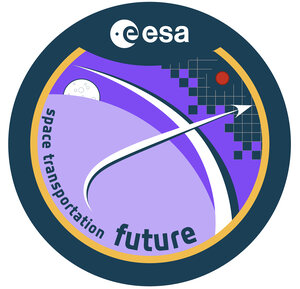Sustainable living in space: Searching for new solutions
As space becomes more accessible for both scientific and commercial endeavours and humans prepare to explore our universe further, sustainable ways of producing water, oxygen and food are needed. Circular life support systems will be key to make this happen. Do you have an idea for low-level readiness technologies for circular resourcing? ESA is offering an exciting opportunity to help shape the future of long duration crewed missions and off-Earth habitats.
When astronauts return to the lunar surface or travel to Mars and beyond, they will have to grow food, filter CO2 and minimise waste, all in a harsh environment unfit for life. Creating a circular life support system is key, as relying only on resources from Earth would be costly, impractical and wasteful.

The new ESA Campaign "Sustainable Future: Advancing Circular Life Support Systems" seeks to accelerate innovation in regenerative life support systems for space. "We want to find new ideas for commercialisation, which is expected to see a big growth in the next years, and for terrestrial applications. Bio-based plastic is just one example, but we are also talking about water, nutrient and food recycling," says Stephan Speidel, Technology Transfer Engineer at ESA and campaign lead.
"By opening this Campaign, ESA confirms its desire to be one of the key players for long-term human exploration. The work already done is the base for future development. Usually, it takes around ten years from identifying a technical challenge to finding a solution. By working with different partners and testing on Earth, we are able to speed up this process considerably at a much lower cost, which it is very useful," says Christophe Lasseur, ESA Head of MELiSSA Project and Life Support R&D Coordinator.
Accelerating innovation
Research into regenerative systems is not new for ESA. MELiSSA is one of the longest-running projects to create a closed-loop life support system – a self-sustainable ecosystem that ideally does not need resupplying. Started in 1989, the ESA-managed consortium is now an international multidisciplinary network of around fifty organisations from 14 European countries. While a full circular system for space still remains a complex challenge, the MELiSSA project remains a driving force to advance solutions in the near future.
"MEliSSA is a well known European project in circular economy and circular systems and the community is expanding. We are pleased to see the synergy with terrestrial challenges and we already have some success. Now is a good time to create partnerships, because we are approached more and more by commercial actors wishing to get involved and we are already exchanging technical data with some of them," says Christophe.
The call is also a good opportunity to find out how stable the existing system is, by creating different terrestrial test beds, with less control. Is the system able to regulate itself or recover from the irregularities that might occur? How does the system behave for a large community of users?
What are we looking for

Stephan highlights: "We are searching for technologies and ideas that are on a low readiness scale, addressing three distinct challenges that we have mapped out with our partners. The campaign is in line with ESA's vision, especially the Space for a Green Future Accelerator. It is also in line with European values, as we have a circular economy agenda in the EU and we have circular resource challenges in space."
The campaign aims to identify ideas, technologies and methods to address the following challenges:
- What is the most profitable biomass composition
- How to deal with the non-degradable outputs of the MELiSSA loop
- Study the virus and phage risk on the regenerative life support processes
Send us your ideas
The Campaign is open until 29 January. Ideas will be evaluated in early 2024 and selected mission concepts will be invited for feasibility studies.
This Campaign is being run by the Discovery element of ESA's Basic Activities via the Open Space Innovation Platform (OSIP). You can find all the details of the timing, process and conditions here.















 Germany
Germany
 Austria
Austria
 Belgium
Belgium
 Denmark
Denmark
 Spain
Spain
 Estonia
Estonia
 Finland
Finland
 France
France
 Greece
Greece
 Hungary
Hungary
 Ireland
Ireland
 Italy
Italy
 Luxembourg
Luxembourg
 Norway
Norway
 The Netherlands
The Netherlands
 Poland
Poland
 Portugal
Portugal
 Czechia
Czechia
 Romania
Romania
 United Kingdom
United Kingdom
 Slovenia
Slovenia
 Sweden
Sweden
 Switzerland
Switzerland



























